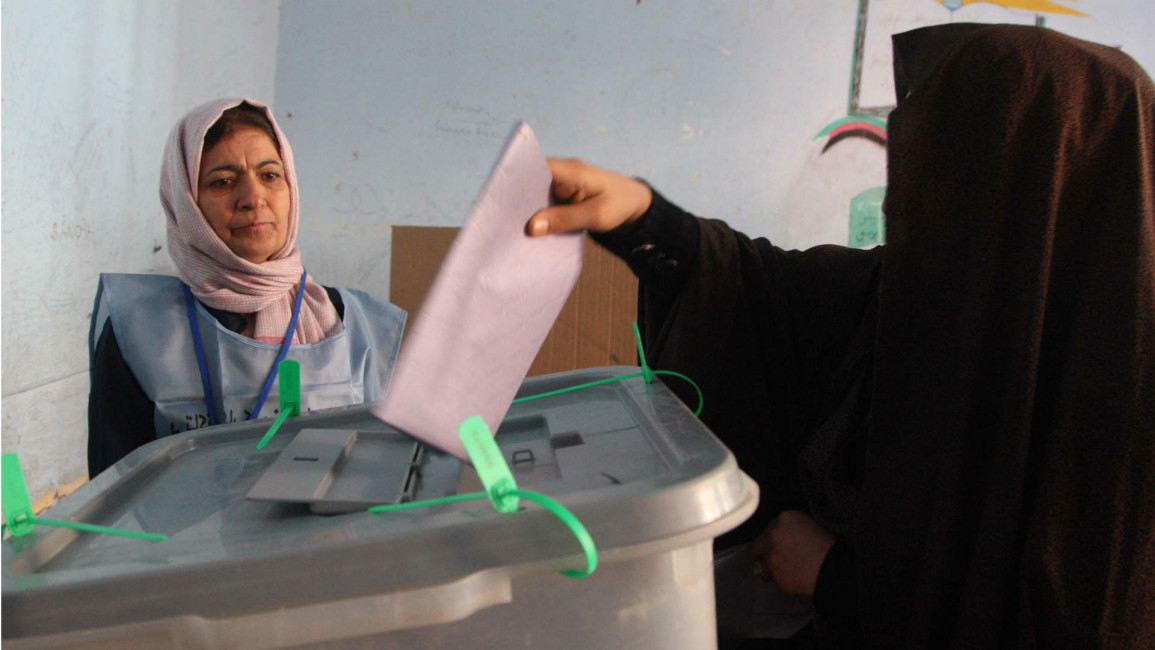
Afghans are serious about their democracy, why aren't we?
When done right, elections are joyous occasions, regardless of the result.
This is why those who despise democracy, who disdain the ability of the people to choose their own government, seek not only to traduce the value of elections or derail them through violence and the spread of chaos, but to rob them of their magic and beauty.
And this is why, every time Afghans have voted en masse since the Taliban was removed from power in 2001, its agents and allies have sought not just to disrupt all those elections, but to make the act of voting seem hollow and small. Such people want to render voting something associated with danger and death and mayhem – and detach it from what it should be about: the exercising of collective popular power.
To observe Afghanistan of late, let alone to live there, has been an exercise steeped in an increasing sense of powerlessness. Recent events have compounded that perception - with the watcher left feeling plausibly helpless.
 |
The violence takes skilful advantage of the laxity with which the United States and others approach Afghanistan's security |  |
But such self-indulgent thoughts soon enough give way to reality. Afghans voted on Saturday. Not only that; they did so in force. Voter turnout, especially among women, was impressively high.
The election provided a sense of the possibility that is endlessly glimpsed in Afghanistan, and crystallised the intentions of those who oppose that path.
Afghanistan's election contained enough hopefulness to counteract outsiders' helplessness. Yet it was still marred by violence. There were no large-scale attacks; such things were undoubtedly planned, but they did not come off, with the Taliban in their place launching smaller and more scattershot attempts to imperil voters and those tasked with their protection.
Twitter Post
|
Concurrent with the election campaign, and no doubt intended to overshadow it, came a brazen Taliban attack on senior Afghan and American military personnel in Kandahar City last week.
Among those at that meeting, among those who came under direct attack, was the United States' senior commander in Afghanistan. Though the commander, General Austin Miller, escaped without a wound, this was not true of every intended target.
The Taliban attack injured an American brigadier-general, Jeffrey Smiley.
But more significant entirely, the Taliban assailants killed General Abdul Raziq, a significant police commander, and General Abdul Momin, who worked in intelligence in the province.
Raziq was shot four times. He died of his wounds at the age of 39, having fought for nearly two decades. In 2015, The New York Times profiled the general as a successful police chief who had tried to stabilise his district, but still feared, entirely reasonably, for his life.
That report referenced Raziq's fear that not only was he in danger - this was made perfectly clear by the large number of attempts made on his life - but that officials in Afghanistan's central government had offered up his head, making him more of a target.
There is little point now in eulogising Raziq more than has been done by others or, correspondingly, in amplifying the concerns some had about the methods he employed in Kandahar.
But there is value in attempting to understand how Taliban assassins were able to murder this powerful figure, whose notable success came in securing Kandahar and its surrounds, when he was in the presence of his presumably well-protected American allies.
 |
There is value in attempting to understand how Taliban assassins were able to murder this powerful figure |  |
Speculation on specific details of this attack would likely prove less than useful.
But general complaints can be diagnosed. And the way the defence of the post-Taliban Afghanistan has been handled shames everyone responsible.
Twitter Post
|
American forces are still present. But they are passive; they serve as targets and bogey figures.
Meanwhile, American politicians openly solicit and debate options promising to detach Afghanistan from America, and render the country less of problem for the superpower.
American evasion of responsibility takes many forms. It includes the perennial revival of an insane scheme to franchise Afghanistan out to a privatised viceroy. This is nothing more than a business proposal, and comes from the people behind Blackwater.
And from that self-centred impulse comes the idea that the Taliban can be dealt with - that, after two decades of direct warfare, they have either moderated or become so essential to the fabric of Afghan society that they cannot be defeated, or displaced, or even discouraged.
All this violence, and the character of the attack on Raziq, Momin and their American guests, no doubt changes nothing for proponents. No single incident of violence, nor years of it, ever quite discredits the above in the eyes of its advocates.
Their selective myopia requires ignoring the Taliban's intent, as demonstrated by the perpetrators of the past weeks' violence: The intention not only to destabilise Afghanistan and discredit its nascent democracy, but to prevent anything like an open society taking root there.
And that violence appears to be having the intended effect.
This violence not only seizes upon the disunity of the Afghan government, and weaknesses in the international forces attempting to protect Afghanistan's developing democracy, but it also takes skilful advantage of the laxity with which the United States and others approach Afghanistan's security and the defence of its future and its promise.
Until the United States and others appreciate that Afghanistan's future is in large part their responsibility, this situation will not change, and will not improve.
 |
Until the US and others appreciate that Afghanistan's future is in large part their responsibility, this situation will not change, and will not improve |  |
Afghan voters and citizens cannot be expected to endure being made targets of the vicious people to whom their country could shortly be turned over by uncaring outsiders.
Afghans vote; and they care about their country. That so few others appear to share that perspective is not only disheartening; it is disastrous, and in need of complete reversal.
If Afghanistan's future elections are to be not only functional but joyous, the rest of the world needs to get serious about defending Afghan democracy.
James Snell is a writer whose work has appeared in numerous international publications including The Telegraph, Prospect, National Review, NOW News, Middle East Eye and History Today.
Follow him on Twitter: @James_P_Snell
Opinions expressed in this article remain those of the author and do not necessarily represent those of The New Arab, its editorial board or staff.




